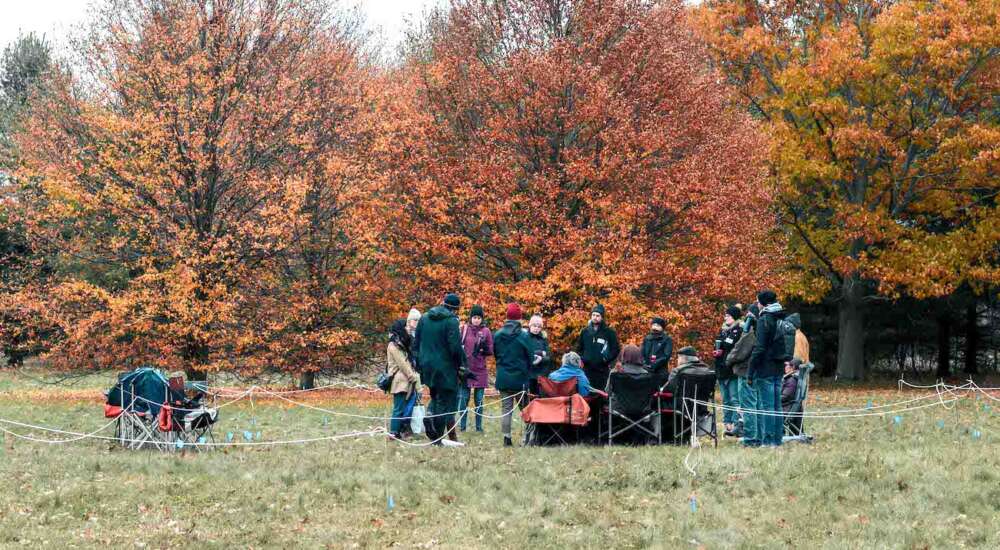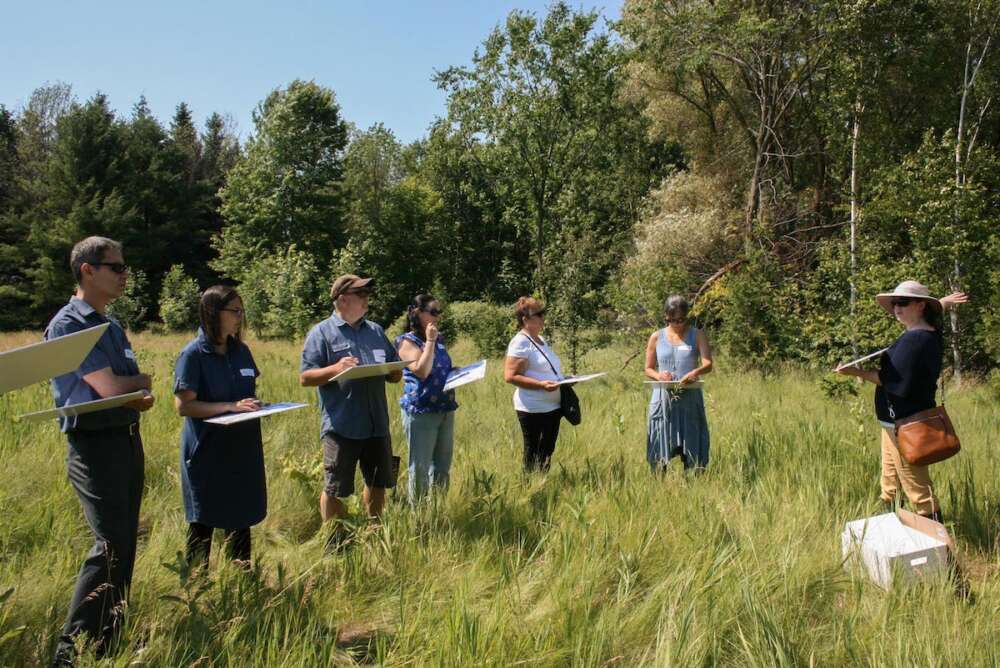
Plans are underway to build on the grounds of the University of Guelph’s Arboretum a unique Indigenous research facility that is expected to be one of the first of its kind in Canada.
The new facility will be called Nokom’s House, from the Ojibway word for grandmother, “nokomis.” It will be a land-based learning space to be used by three Indigenous researchers, their students and collaborating Indigenous community members for research, engagement and ceremony.
Just as a grandmother’s house is a space of comfort and belonging for many, so too will be Nokom’s House, a quiet retreat from a bustling urban campus that offers a research space for sharing, creativity and planning in a way that makes sense for Indigenous researchers and students.
To be built in a clearing on the west end of the Arboretum, the Nokom’s House building will have the warm and inviting feel of a granny’s cabin, with a large kitchen and kitchen table, a woodstove, lounge space, consultation room and porch.
Gardens, a sacred fire space, and ceremonial grounds will surround the research hub where visiting, cooking, creative work and retreat activity can take place.

The unique facility is expected to become a model for decolonizing post-secondary spaces that embrace innovative ways of researching, teaching and collaborating with community on the land.
Dr. Kim Anderson, Department of Family Relations and Applied Nutrition, Dr. Sheri Longboat, School of Environmental Design and Rural Development and Dr. Brittany Luby, Department of History, are the driving forces behind Nokom’s House.
Within the Métis (Anderson), Haudenosaunee (Longboat), and Anishinaabe (Luby) cultures, grandmothers hold distinct leadership positions and responsibility for the wellbeing of relations both human and in the natural world.
This team will work collaboratively with community “Grandmothers” including Indigenous Elders to implement research projects that advance wellness for all our relations.
Anderson, Longboat and Luby describe the Nokom’s House Research Lab as a welcoming, nurturing and safe place to learn, gather, create and take part in ceremony.
Anderson’s research looks at enhancing relations among and between people, land, plants and animals, and the spirit world. She said having a land-based space for that kind of exploration is unique and she hopes Nokom’s House will be a space where people can rebuild relations that connect the many elements of life.

Longboat’s community-engaged applied research aims to bridge First Nations communities, government and industry partners in support of self-determined Indigenous planning and development.
She said an Indigenous research lab led by Indigenous women “to make or reclaim space in the academy” is “truly powerful” and could contribute to great change.
Luby’s research includes Anishinaabe family responses to settler encroachment with a special focus on water infrastructure. Luby sees Nokom’s House as an opportunity to reconnect with land as a teacher and to enliven Indigenous pedagogy at U of G.
For the Arboretum, the plans build their core efforts to connect people to nature, further environmental knowledge as well as conserve plant diversity and animal habitats through research, teaching and community outreach.
Construction on Nokom’s House is expected to begin in 2022.
The University has approved an overall project budget of $2.4 million for Nokom’s House, with the Canada Foundation for Innovation John R. Evans Leaders Fund awarding the project $298,160. A fundraising campaign is also underway.
For more information on the ways the University is moving towards truth and reconciliation, visit Indigenous Initiatives.
